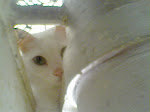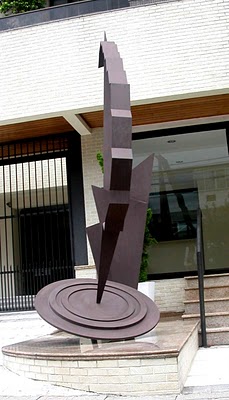In Italy in the 18th and 19th centuries, a popular performer of poetry called the improvvisatore and improvvisatrice could, as prompted, deliver extempore breath-taking sustained ottava rima poems on topics ranging from the glories of Italy to the tragic death of Hector. Byron and the Shelleys heard them in performance and knew personally the improvvisatore Tommaso Sgricci. They responded to performances or reports of them in their own poetry, alluding to the improvvisatori, ventriloquizing them, quoting the favored stanzas. Along with Byron and Shelley, other Romantic poets, later in the period, responded to them as well: Keats, Bryan Procter, Thomas Lovell Beddoes, Felicia Hemans, the Coleridge of 1825, and Laetitia Landon all wrote poems with direct or indirect reference to the improvvisatori and to poetry as improvisation? What was it in the poetry of the improvvisatori that the British poets wished to incorporate or translate into their own, written, poems and to what end? One could easily imagine--and indeed I initially surmised--that the English poets were presenting a second-order engagement with spontaneity and experience, a reflective and interpretative one, an instance of Friedrich Schiller's sentimental, rather than naive, poetry, Wordsworth's "emotion recollected in tranquility." In a poem like Hemans's "The Dying Improvisatore," for example, the performer speaks from his death bed, mourning the vanishing of his art and livelihood. Besides, how could one actually write that which by definition vanishes with its very speech and gestures? But, ever since the Romantic period, poets has found ways of "translating" that essential ephemerality into written equivalents. Literary history associates improvisational poetry with Byron's Don Juan, but only as a wonderful aberration, nothing one would define as the poetry of Romanticism. I propose, on the other hand, that the above-mentioned poets, including Byron, attempted to wrest improvisational poetics from the periphery and draw it into the center of Romantic concerns. Other poets and writers of the nineteenth century such as Pushkin in Russia, Thoreau in North America, and Adam Mickiewicz in Poland. have turned to improvisational poetics in their works. And with over a century of experiments in improvisation (such as the "automatic writing" of the Surrealists, the aleatory poetry of John Cage and Jackson Mac Low) and the "theory" to go along with them, it is now possible to describe with a new clarity the Romantic presence of improvisation. Moreover, I shall propose that improvisational poetics may have been defining for "later" British Romanticism. In this paper, therefore, I shall sketch a poetics of Romantic improvisational poetry, some of the formal possibilities chosen by Romantic poets to enact improvisational poetry, and speculate on the link between improvisation and a feminist Romantic poetics. Traditional notions of Romantic lyric, and lyric poetry in general, encourage a definition of the Romantic response to improvisational poetry as sentimental. Unsung as a kind of zeitgeist poetics for the post-Revolutionary era, Schiller's distinctions, in On Naive and Sentimental Poetry, between a poetry of immediacy and one of self-conscious contemplation and recollection became and continues to serve as a paradigm for thinking about poetic possibility during Romanticism and after. Thus although he associates a self-conscious poetry with the world of Romanticism, I nonetheless find Schiller useful for initiating a discussion about the fate of improvisation in Romantic poetry: indeed, improvisational poetry could be said to fulfill the conditions in the present of Schiller's apparently irretrievable naive. The naive, according to Schiller, rejoices in the "living presence of the object," encourages "serene spontaneity" and "the naive of surprise." At times it is difficult to distinguish between childish and child-like innocence. In the naive poem, signifier and signified are one. Schiller, describing Homer as the quintessential naive poet, observes that his method in the similes is juxtaposition, which he carries out in a "heartless" way, without sentiment. Moreover, Homer and other naive poets could be considered negatively capable, losing themselves in the referent. The sentimental (emotion-driven) poet, on the other hand, stands at a distance from such "perfection," dwelling in a state of striving, desiring, and progressing towards what he or she perceives as ideals. Elegiac by temperament, the sentimental poet looks upon the vanished world of the integrated self and nature as something to be mourned but its eventual return in the present in a new more complex form something to be hoped for. Similar to Schiller, in England, Wordsworth, defining poetry as "emotion recollected in tranquility," sums up the conditions of the sentimental. First, "emotion"--that is, affect replaces the referent, is at the basis of it, but emotion itself stands at a remove from the present. Secondly, if the world and the self that produced the emotion define "experience," then poetry not only refers to experience that has already happened, but it appears in the poem as a recollection: the mental recuperation; the "drama of the lyric subject," is privileged over the experience itself. Similarly, third, a tranquil state is preferred over the startled, emotional, state of encounter with the other. (The naive poet, says Schiller, by contrast, "runs wild.") Apparently the predominance of the recollection of "emotion" or affect as a subject for poetry precludes the possibility of a poetry of the referent. When emotion and the drama of the lyric subject flood the poem's landscape, the world itself, including the world of other voices vanishes. It follows that the mistake of looking at improvisation through the category of the sentimental--in the works of Schiller, Wordsworth, and their followers--is the assumption of the originary status of the naive and of improvisation: that either is in some sense "pre"-poetic. Rather a poet of improvisation simply chooses a different emphasis and intention...










2 comments:
Thank you so much for sourcing this! Pommes roars his appreciation!
BORIS AGREES 100%
Post a Comment